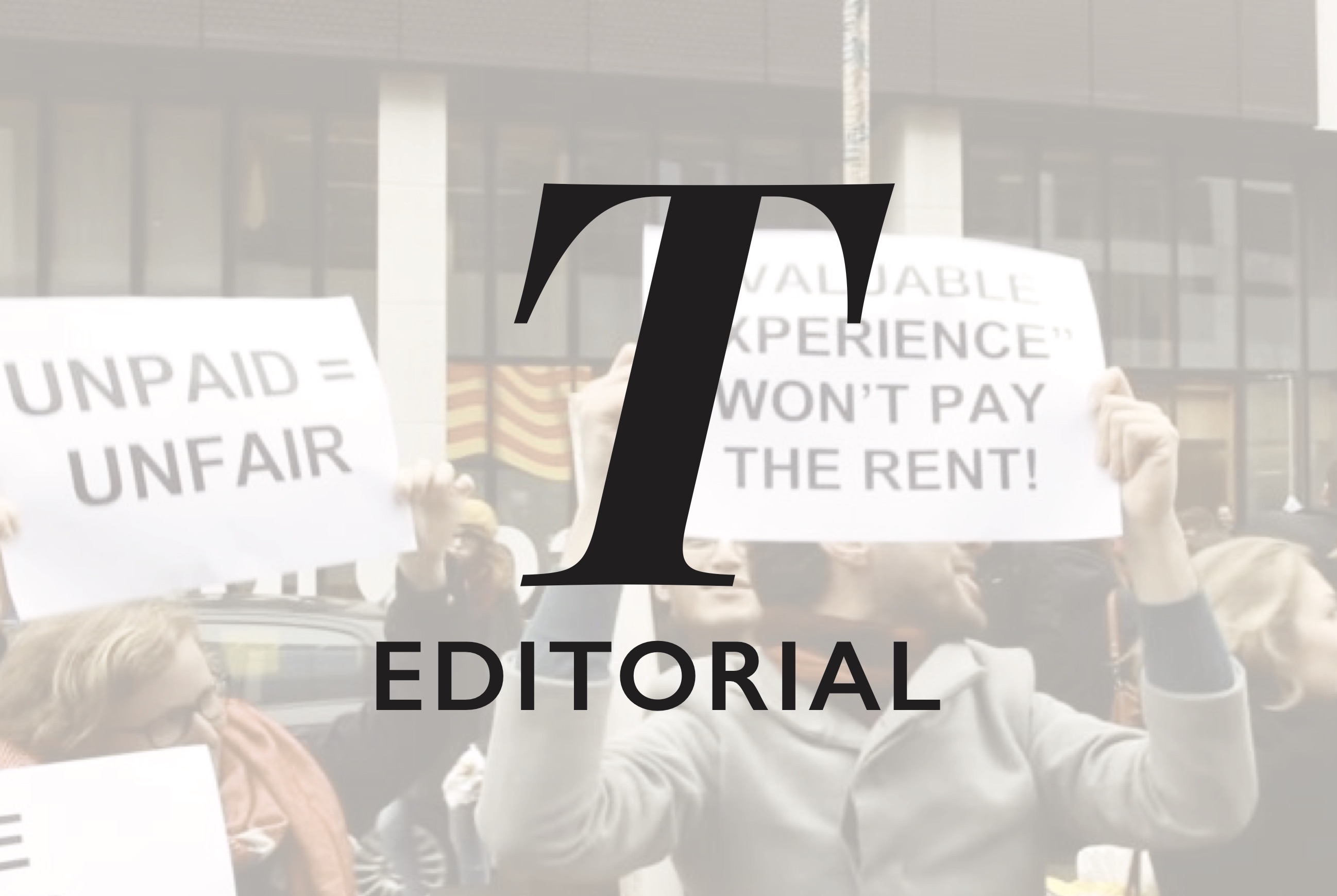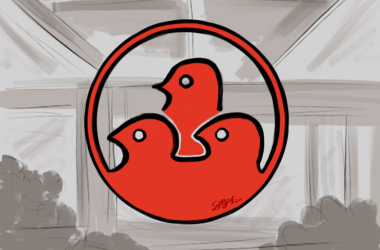Unpaid and underpaid labour is pandemic in university culture; from internships to extracurriculars, students are often encouraged to take on work that pays in ‘experience’ rather than monetary compensation. From Nov. 19 to 23, the Social Work Students’ Association (SWSA) and the Social Work Association of Graduate Students (SWAGS) are on strike to protest their programs’ mandatory unpaid internships. Unpaid internships are an economic barrier that unfairly restrict students from lower-income backgrounds, and students deserve to be compensated for their labour.
Not only are social work students’ mandatory fieldwork hours unpaid, but, students pay to work them: According to SWSA, students have to pay tuition for fieldwork courses as they would for any other course. Students are not even compensated fairly in credits, as they must complete 12 credits of field placement courses to graduate with a BSW. Each course entails 200 hours of practicum work, or 15 hours per week. By definition, three-credit courses should consist of three hours a week of instructional time. The 12 hours of extra work a week that social work students perform without academic credit mean that, over the 800 hours of required for a BSW, social work students are short-changed 624 credits. Furthermore, social work students are expected to commute for up to one hour to their placements if necessary, adding to the unrecognized burden they carry.
The social work students’ strike is part of a broader protest against unpaid internships in Quebec which is organized by the Comités unitaires sur le travail étudiant (CUTE). Working without pay is a common experience for students, be it at community or campus organizations or as part of a degree: Like social work students, undergraduate students in education are required to complete four unpaid fieldwork assignments. These field placements are necessary and mandatory additions to the social work program. Social work requires immersive training, and it is imperative that students’ educations reflect that reality. Experiential learning is a valuable educational method, especially in a field like social work where much of the work is demanding, especially from an emotional perspective.
Even when unpaid labour is not an academic requirement, students’ desires to build work experience or help their fellow students make them vulnerable to exploitation. This is especially true of students’ emotional labour. The Sexual Assault Centre of the McGill Students’ Society (SACOMSS), a Students’ Society of McGill University (SSMU) service that provides support to students who have experienced sexual violence, is staffed exclusively by volunteers; McGill’s Office for Sexual Violence Response, Support and Education (OS-VRSE) also has student volunteers. Walksafe, a SSMU service that accompanies students walking home alone at night, similarly depends on unpaid work. McGill and SSMU must offer financial support to these essential services in order to ensure that employees’ work is properly compensated.
Paying social work students for their fieldwork entails obvious financial complications, as most host organizations are non-profits. However, the School of Social Work (SSW) and its community partners have an ethical obligation to work with social work students’ associations to find a sustainable long-term solution to these issues. That solution should include pay. For example, McGill, unlike most Canadian universities of its size, does not offer a co-op program; adopting a similar model for social work students ought to be considered.
The SSW faculty planned to stand in solidarity with the strikers by cancelling classes this week, but were directed to continue instruction as usual in an email sent by School of Social Work Director Nico Trocmé and Dean of Arts Christopher Manfredi.
“Teaching faculty support the concerns of the students, but we do have a requirement to teach classes, both as part of our legal requirements and with respect to requirement [to provide instruction],” said Trocmé, director of the School of Social Work, said to The McGill Tribune. “Any student who requests class is entitled to have class.”
The SSW faculty efforts to support SWSA strikers were upended by Trocmé and Manfredi’s sudden decision to continue classes. Trocmé and Manfredi’s statement blatantly ignores students’ actual requests: Social work students overwhelmingly voted to strike, and this decision should be respected by the McGill administration.
Unpaid internships are not just detrimental to those undertaking them, and their inaccessibility to those without outside financial support perpetuates broader social and economic inequalities. Social work students provide an essential service to society by helping those who need it most. They deserve compensation and a better deal—from their school and host organizations alike.
SWSA’s protest will be held from 3–6 p.m. from Nov. 21 at Place Émilie-Gamelin.









